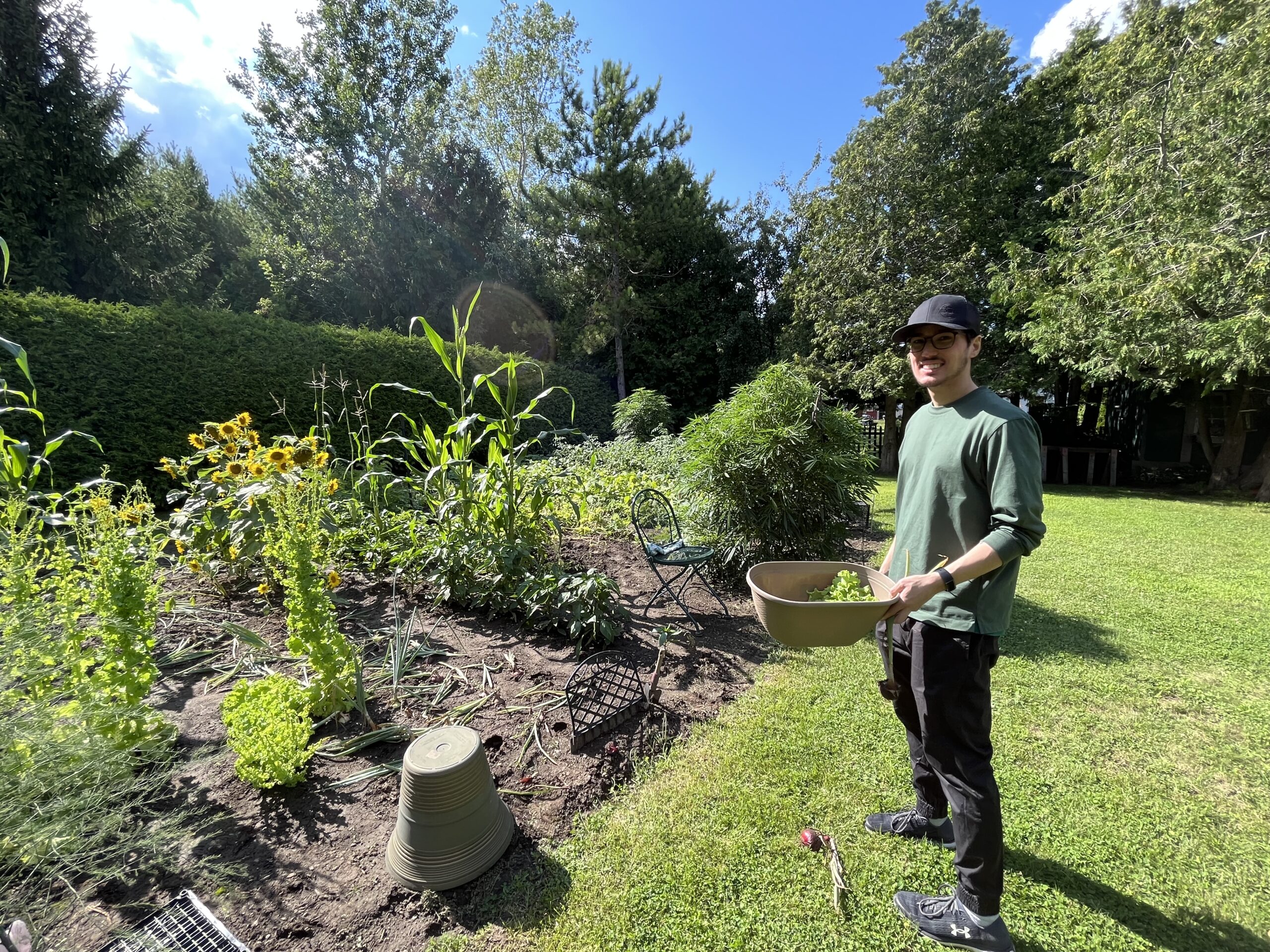Living with Lupus as a Young Man | Jonathan’s Story – Lupus Canada
A Young Man’s Journey with Lupus, Isolation, and Resilience

Signs from the Start
Living with lupus has been an introspective yet isolating experience for 30-year-old Jonathan Michelin of Toronto, Ont.
“I always wondered what it [lupus] was like for other people. I don’t know anybody who has it,” he says.
Jonathan has been dealing with the symptoms of lupus since his early adolescence. But looking back, he believes there were signs earlier, as he had eczema and asthma growing up. In his teens, his skin issues turned into acne or rashes that were prone to infection and left scabs on his skin. Although breakouts aren’t totally uncommon for a teenage boy, his were accompanied by joint pain and swelling.
Jonathan chalked up his pain to karate practice, so he took a break from the sport, expecting the joint pain would go away, but it didn’t.
Navigating University with an Undiagnosed Illness
University life offered Jonathan a glimpse into adulthood. He had a fulfilling and active social life all the while studying and keeping up with school work. Everything seemed to fall into place.
“But from a physical standpoint, not so much.”
At 18 years old, his pain became so unmanageable that he was practically living off Advil. He started seeking medical care to figure out what was going on.
“We assumed it was probably arthritis. I remember my stepdad saying, ‘Let’s hope it’s not lupus.’” He says. “I didn’t even know what lupus was.”
The tests carried on for two years. Blood work came back inconclusive. Doctors couldn’t seem to figure out what was going on. But, after a student abroad trip to Hong Kong, Jonathan finally got his answer.
“I wasn’t really worried, to be honest. I was just relieved I got my answer,” he says. “I could finally receive treatment.”
Jonathan started taking medication and thought that would be the end of it. He continued living his life the way any 20-year-old would.
“I would do things that would aggravate my lupus. Like drinking alcohol or staying up late and not sleeping, or eating poorly. I kept getting flare-ups.”
A Wake-Up Call
This pattern continued on for some time until he experienced what he describes as a “Well-needed wake-up call.”
Jonathan had a flare-up that caused him to stay in the hospital for six weeks. While there, he shared a room with a terminally ill patient.
“They were not able to recover, but I was,” he says. “That time gave me a new lens and appreciation for life.”
Jonathan kept thinking to himself, I don’t want to die. He was, for the first time, experiencing death firsthand rather than conceptually. Those six weeks in the hospital taught Jonathan how to think introspectively. Not only prioritizing the body, but the mind too.
“I had this pattern of thinking negatively,” he says. “When flare-ups happen, the negative thoughts won’t go away.”
Mental Health, Masculinity, and Lupus
Jonathan struggled with his mental health for some time. He had his family for support, but his peers did not fully understand what he was going through. It was difficult for him to reach out to his friends and open up about what was going on.

“I am not sure how common or uncommon it is in male friend groups, but we’d stay out late and drink. Navigating that was hard because it’s not always the best time to talk about feelings.”
Jonathan struggled with keeping things “bottled up.” But he recognized that on some level, he needed to address the negativity he was harnessing. That is when he turned to journaling.
“I can express my feelings in my writing on a stream of consciousness level. Sometimes I’d write things and think, Wow, that came out of me?”
Finding Support and Redefining Strength
Prioritizing his mental health has been a significant step in his healing journey.
Due to his not knowing others with lupus, he has found a source of comfort and solace in reading his own words. Jonathan is trying to break out of his shell, though. He has started reaching out to lupus support networks.
“This is why I am doing this interview,” he says.
Actively changing his mindset has also made a significant difference to his mental health. Rather than seeing lupus as a negative, he tries to see it as a growing opportunity.
“Lupus has allowed me to understand myself beyond a surface level,” he says. “I’ve learned to live outside my head…Which I am thankful for.”
Raising Awareness for Young Men Living with Lupus
Jonathan’s story reflects an often-overlooked perspective — that of young men living with lupus. While the disease is more common in women, thousands of men in Canada are affected.
By speaking out, Jonathan hopes to bring visibility to men navigating chronic illness and encourage others to prioritize both physical and mental health.
Let's Talk Lupus: Conversations with Macenzie
Each month, Let’s Talk Lupus: Conversations with Macenzie brings you inspiring stories from Canadians living with lupus. Through these interviews, Macenzie, a Toronto-based journalist and writer diagnosed with Systemic Lupus Erythematosus (SLE) in 2017, shines a light on the experiences, challenges, and triumphs of those navigating life with lupus.
If you’d like to share your story, please email ariana.ranjbar@lupuscanada.org.

Explore More Support from Lupus Canada
-
Learning to Live Well With Lupus– People living with lupus often need to adapt to complicated medical regimens to control symptoms and prevent disease flares. Making gradual and achievable lifestyle adjustments can help improve quality of life and provide a sense of well-being.
- National & Provincial Support – Access a network of resources and services available across Canada.
- Explore Canadian Men’s Health Foundation: June is Men’s Health Month, a time to support and encourage men and boys to prioritize their well-being. While lupus is more common in women, thousands of men across Canada live with the disease too. Their stories matter. Learn more about men’s health and how to take action.
- Men and Lupus – Learn how lupus can present differently in men and why tailored care and early diagnosis matter.
